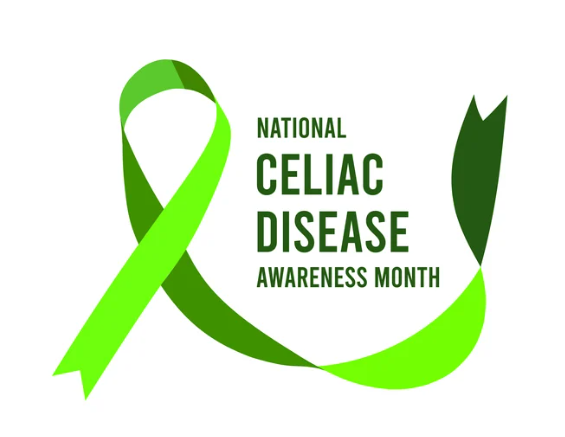May is Celiac Disease Awareness Month
The month of May is Celiac Disease Awareness Month, with May 16 being designated as International Celiac Disease Awareness Day.
Celiac disease is an autoimmune disease that occurs in genetically predisposed people where the ingestion of gluten leads to damage in the small intestine. It is estimated to affect 1 in 100 people worldwide, but only about 30% are properly diagnosed.
When people with celiac disease eat gluten (a protein found in wheat, rye, and barley), their body mounts an immune response that attacks the small intestine. These attacks lead to damage on the villi, small fingerlike projections that line the small intestine, that promote nutrient absorption. When the villi get damaged, nutrients cannot be absorbed properly into the body.
Celiac disease is hereditary, meaning that it runs in families. People with a first-degree relative with celiac disease (parent, child, sibling) have a 1 in 10 risk of developing celiac disease.
Celiac disease can develop at any age after people start consuming gluten. Left untreated, celiac disease can lead to additional serious health problems.
In recent years, there has been some evidence showing a potential link between gluten sensitivity and autism. A 2013 study shows that children with autism had a higher level of genetic markers for celiac disease than children without autism.
While this study doesn’t prove that autism and celiac disease are related and the theory is still relatively new, you may want to consider a discussion with your medical provider on the possible benefits of a gluten-free diet for those who have autism.

